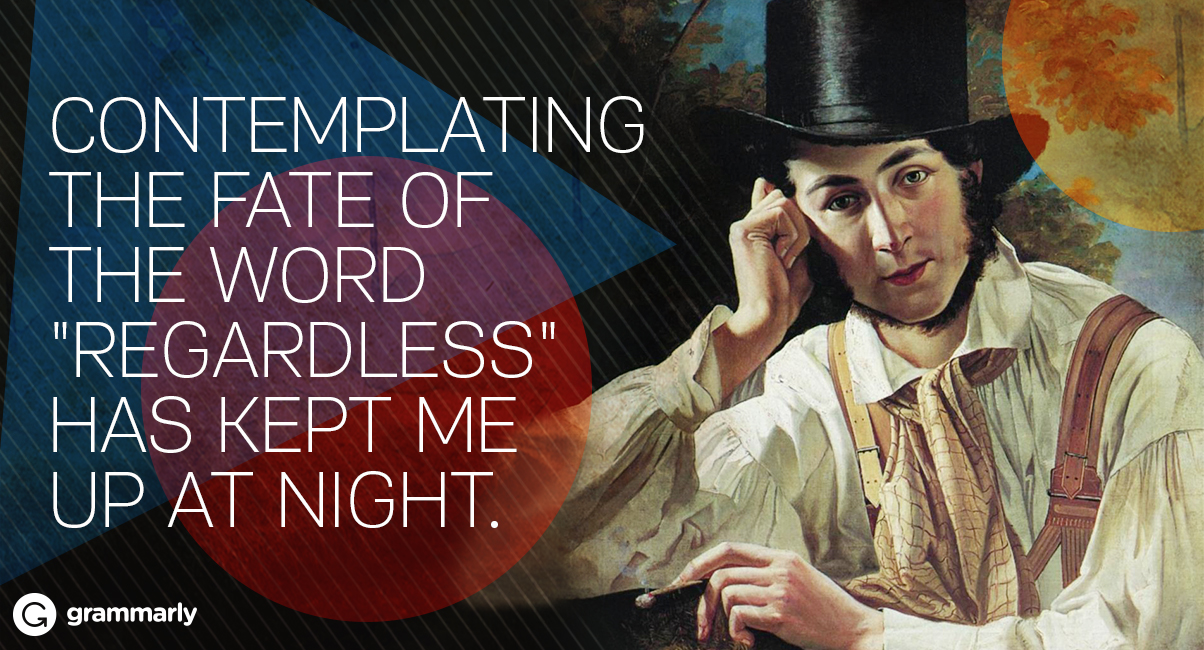People seem to feel the same way about irregardless as they do about God.
Some swear it doesn’t exist as a word in the English language. Others counter, just as passionately and piously, that it does. There are people who want proof, and there are those who argue that the word itself is illogical because it’s a double negative thanks to the negative prefix ir- and the negative suffix -less.
You want the truth? If you can handle it, here it goes:
According to the noble brethren at such esteemed institutions as The Oxford English Dictionary, The American Heritage Dictionary, and The Merriam-Webster Dictionary, irregardless is absolutely a word. It means the same thing as regardless, and language experts estimate that it’s been around for at least a century (most likely thanks to an accidental combo of regardless and irrespective).
Though, as the above keepers of the faith are quick to point out, anything can become a word if it’s in widespread use. Dictionaries do not invent words; rather, they legitimize them after it’s been proven that they’re part of communication convention.
So, the better question is, is irregardless acceptable?
We took to Twitter to find out. One user clarified, “Irregardless is not not a word. It’s a stupid word. There’s a difference.” Others threatened to flip a table, end a friendship, or take their own life if they came in contact with the term, and one particularly angry poster even suggested “Hunger Gaming” anyone who used the word.
Right, so there’s your answer in a nutshell. As the Twitterati have so aptly demonstrated (and as the dictionaries themselves more tactfully second), while irregardless may technically be a legitimate word, those who use it will be treated as uneducated, blasphemous toads at risk of being offed by greater society.
And that, friends, is the main reason you shouldn’t use it.
What do you think? Should we lobby the dictionaries to remove irregardless? Or, alternatively, should society be more accepting of words like irregardless and conversate? Tell us your opinion in the comment section below or via our Facebook and Twitter feeds.
Stephanie Katz is a San Francisco–based writer who, contrary to the way it may seem, won’t correct your grammar over beers, coffees or any other normal life interaction. She tells stories about health, history, travel and more and can be contacted via email at stekatz@gmail.com.
from www.grammarly.com/blog
http://www.grammarly.com/blog/2015/irregardless-is-a-word-but-heres-why-you-still-shouldnt-use-it/

No comments:
Post a Comment